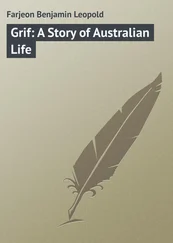Behind me I hear a whistle and I turn to look at the power plant. A little train runs from the plant to somewhere else — I don’t know where — and brings back coal. Maybe there’s a coal mine nearby, though in school when they gave us maps with little pictures showing Texas’s natural resources, I didn’t see a coal nugget. An oil derrick, yes. A cow, yes. A cotton boll, yes. But no coal nugget. So maybe it’s just a stockpile of coal this train goes to. Anyway, the train only runs back and forth from the plant to wherever the coal comes from. It does this all day and all night too, I guess. Right now it’s headed to the power plant, its cars filled to the top with coal.
I point to the train. “You see that?”
No one looks.
The Wind in My Hair
My favorite part of a fishing trip — yes, I do have a favorite part — is when we speed across the lake to find a spot to fish or speed back to the boat ramp. I sit up front and let the wind hit me. I like going places fast, even if it’s not really anyplace I want to go. Sometimes I imagine rolling off the boat when we’re speeding across the lake. Balling up my legs and wrapping my arms around them, then tumbling off. It would hurt, I know. I’ve gone tubing before, and every time I fell off the tube it was like someone slapping me in the gut, hard, before I sank into the water.
But my fear isn’t how it’ll hurt when I land on the water. It’s the propeller. What if I somehow roll the wrong way, get sucked under the boat and shredded by the propeller? It’s a small propeller, sure, but it scares me enough.
Still, it would be nice to hear my mom scream in worry. It would be nice for my stepfather to stop the boat to save me.
Exhibit C
Just last week we were at a different lake, camping, when my stepfather said, “Heads up!” and pushed me underwater. I flailed, the dirty water flooding my nostrils and my mouth as I tried to scream.
“Don’t be such a pantywaist,” he said when he let me up. “I was just horsing around.”
I told him I wasn’t scared, that he was too quick, I didn’t have enough time. Which was a big lie, of course. I went after him to grab him, to pull him under. This was a rare sight: me trying. But he just looked at me and said it was too late. And it’s like I finally knew. Of course I could never win. So I said I didn’t give a shit. His back was turned, and I muttered it, but I meant it. I swam some more, my feet catching at tree roots, and didn’t give a shit.
A Narrow Escape
In math class, I was erasing more numbers when Mrs. Pickett called my name. I’d been taking too many chances. Like, I’d erase a whole problem, which is just stupid because it shows my hand. I mean, when you look from problem eight to problem ten and see this huge blank space in between, it doesn’t take a genius to figure out something’s off.
I started to sweat. Mrs. Pickett was looking at me, and the class was quiet.
“Could you come up to the board and help Jason with this problem?”
Oh. That’s all. “Sure,” I said.
At the board, Jason breathed in my ear and whispered “pussy-licker” at me while I finished his problem.
I whispered, “You wish,” and only when I sat down did I realize the perfect comeback. You fucking bet I am. I said it now under my breath—“You fucking bet I am”—and Jenna Blalock, who’s already thirteen, flirts with everyone, and has the third-biggest tits in our grade, turned around, her eyes wide in mock horror.
Later, during lunch, I thought of what I’d say if Mrs. Pickett ever did catch me. It’s perfect. It’s in every after-school special and probably every teacher’s student psychology handbook. “What is this?” she’ll say, pointing to some empty spaces. “That,” I’ll say, “is a cry for help.”
Back to Port
I’ve got a sunburn now, so there’s that. My stepfather puts another fish in the livewell, ripping the hook out of its jaw like it’s nothing, and then decides it’s time to go home. My mom’s been ready for a few minutes. I’ve been ready for hours.
I help prepare the boat, though no one asks me, taking down the raised fishing seats so they screw in level with the deck. Then I sit in the one up front.
My stepfather heads us back toward the boat ramp, opening up the motor when we get to the part of the lake where the hydrilla isn’t so bad. The boat bounces a couple times when we cross someone else’s wake, and then we round a bend and come in sight of the beach, where the Army Corps of Engineers trucked in sand so people can swim and play in a lake that poisons fish.
“You’re going to help me clean these bass,” he shouts up to me, and all of a sudden I’m sick of it, I’m so sick of it. He knows I hate cleaning fish: the dead scales sticking to my fingers, the fish blood on my hands. And of course my mom’s just sitting there, saying nothing.
Once, when I wrote to my dad and told him how crappy things were and begged him to let me stay with him, he wrote back that life is about adjustment. I couldn’t tell if he was talking about me or himself. He went on about Corporal Edwards, saying how when he returned home from the war, he found raccoons nesting in his cabin, his wife run off to New Orleans. Sure, being adjusted is easy if you’re dead, I thought, and in some book.
The shore’s rushing toward us, and I’m about to mouth off when it comes to me, the daydream from my other fishing trips. Me tumbling over the side, my mom and my stepfather seeing it all and springing into action to save me. I picture how they’ll worry, the quick sad flash in their faces. And then it’s like, why not? I mean, what if this is the thing, the one thing that’ll make everything else okay? And then it’s like I can’t not do it. I look around. The lake’s clear. I think about it, and then I stop thinking about it. I ball my legs and grip my knees, and I go.
Halfway over, I hear my mom shriek. I’m in the air, and my stepfather’s killed the engine. For a split second it’s like it’s all falling into place. They’re watching, I know they’re watching, and I want to keep this moment forever, the quiet, the smell of the lake below me, the wind whipping my hair, everything belonging, me belonging, just like I wanted.
Then I glance back, and it’s lost. They haven’t seen me at all. That pink hat has flown off my mom’s head — that’s why my stepfather stopped the boat — and they’re looking the other way, watching as the hat floats on a breeze. And it’s like, really? Really? I take a breath, but before I can shout to them, the lake reaches up to slap me and pull me in, and I’m gone.
THEY WERE HIKING DOWN THE HILL when they first heard the singing — a distant, lone man’s voice that seemed to echo off the river, or maybe off the canyon walls that rose at the trail’s end. Shelly said she thought the singing might be a radio, and Josh, her husband, said he wasn’t sure.
The hike was short, just over a half mile from the parking lot to the opening of Boquillas Canyon, where you were supposed to stop and watch the Rio Grande pouring between the sheer cliffs. The singing continued as they descended to the river’s edge, where the reeds kept them from seeing anything but the trail itself and the sky above. Cuando, the voice said, pleading.
“Probably one of those guys in the shelter,” Josh said. At the top of the hill, they had looked across the river and seen a small shelter made of sticks with four Mexican men squatting beneath it. Shelly had felt a pang of guilt while studying them — for being invasive, for being the privileged white woman peering into someone else’s hardscrabble life — but she couldn’t help looking. Mexico itself didn’t so much fascinate her as did the simple notion of a wholly foreign place just across the river.
Читать дальше











